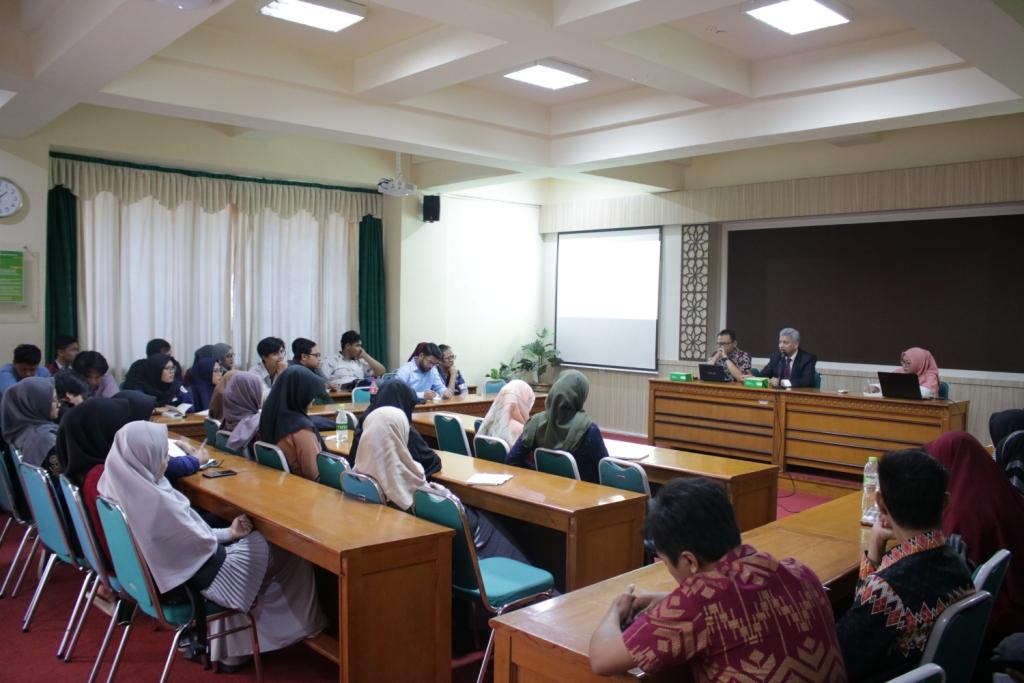International Seminar: Comparative Democracy of Pakistan in Indonesia
 Yogyakarta – Government Science (IP) University of Muhammadiyah Yogyakarta (UMY) in collaboration with the Masters of Government Science (MIP) UMY held an International Seminar on the topic “Democratization in a Muslim State: A Comparative Study between Indonesia and Pakistan” on Tuesday (1/10). Located in the Meeting Room of the Faculty of Social and Political Sciences (FISIPOL) UMY, the seminar presented two speakers, namely Dr, Nazir Hussain from Quaid-i-Azzam University, Islamabad, Pakistan and Dr. (Cand) Tunjung Sulaksono from UMY.
Yogyakarta – Government Science (IP) University of Muhammadiyah Yogyakarta (UMY) in collaboration with the Masters of Government Science (MIP) UMY held an International Seminar on the topic “Democratization in a Muslim State: A Comparative Study between Indonesia and Pakistan” on Tuesday (1/10). Located in the Meeting Room of the Faculty of Social and Political Sciences (FISIPOL) UMY, the seminar presented two speakers, namely Dr, Nazir Hussain from Quaid-i-Azzam University, Islamabad, Pakistan and Dr. (Cand) Tunjung Sulaksono from UMY.
On this occasion, Nazir explained explicitly about the implementation of democracy in an Islamic state and the state of democracy in his country, Pakistan.
Nazir explained that the concept of western democracy could not be fully applied to an Islamic state. According to him, this was due to some differences between the concept of western democracy and democratic values in the Koran and the Sunnah.
Meanwhile, in this seminar, Tunjung explained the history of democracy in Indonesia, starting from the Old Order era, the New Order era, until now. He told that communal life in Indonesia continued to experience tidal dynamics so that it had an impact on the social fabric of society.
“At the age of more than 74 years, Indonesia continues to experience dynamics that fluctuate in its communal life. This certainly affects other things such as the social life of the Indonesian people, “he said.
From the discussion delivered by the two speakers, it can be concluded that between Indonesia and Pakistan have similarities and differences in the application of democracy.
The similarities between the two countries, both Indonesia and Pakistan, are equally problematic in implementing democracy. Meanwhile, the difference is that Indonesia applies democracy based on the values contained in Pancasila and emphasizes pluralism, while Pakistan applies Islamic democracy which is entirely based on the Koran and the Sunnah.
The participants seemed very enthusiastic, shown from the number of participants who asked questions to the speakers. (Bhk)